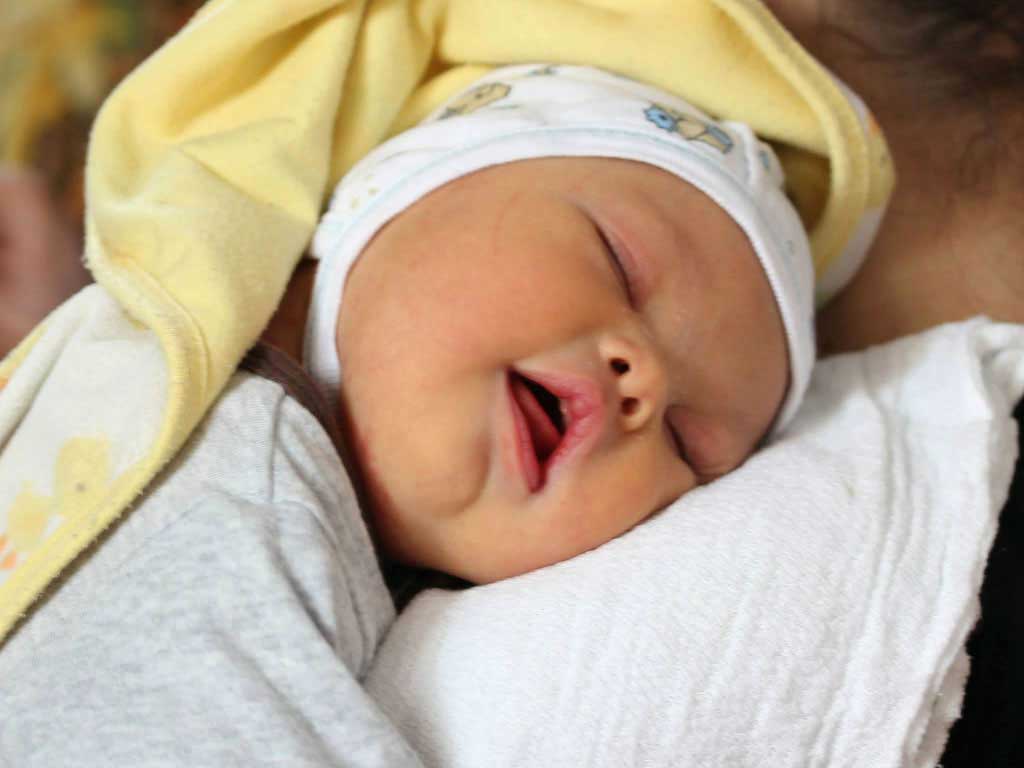
When Samuel Forrest’s son Leo was born Jan. 21, doctors informed him that Leo had Down Syndrome, which made no difference to Forrest.
“I looked at this guy and I said, he’s beautiful – he’s perfect and I’m absolutely keeping him,” Forrest told ABC News.
But for Forrest, a native New Zealander living in Armenia, there was one thing he hadn’t counted on. Leo’s mother, Ruzan Badalyan, issued him an ultimatum there in the hospital room, he says: It was her or Leo.
As Forrest explains on his GoFundMe page, “scores of babies are abandoned [in Armenia] each year, for reasons ranging from physical or intellectual disabilities and minor ‘imperfections’ … health professionals estimate that 98 percent of all Down syndrome babies born in Armenia are abandoned, every year.”
Forrest said, “[Badalyan] told me if I kept [Leo] then we would get a divorce.” (Badalyan confirmed to ABC News that she had given birth to a child with Down syndrome and did leave the father and child, filing for divorce about a week after Leo was born. She declined further comment.)
Forrest hadn’t been aware of the practice beforehand. “What happens when a baby like this is born here, they will tell you that you don’t have to keep them,” he said. “My wife had already decided, so all of this was done behind my back.”
A freelance contractor, Forrest was unprepared to deal with the sudden costs of being essentially abandoned in a different country with a newborn son. He set up a GoFundMe page to raise money to help him return to New Zealand with Leo.
Though his initial goal was set at $60,000, the page has raised nearly $300,000 at the time of this writing, some of which Forrest says will be used to “fund facilities and programs here in Armenia that will support future parents to keep their kids despite all disabilities.” Another portion will go to the one orphanage in Armenia that regularly takes Down syndrome babies.
“After what I’ve been through with Leo, I’m not going to sit back and watch babies be sent to orphanages,” Forrest said. “As a child with Down syndrome, that becomes somewhat of a label. If we can get around this label, we’ll see that they’re normal. They’re a little different from us, but they’re still normal.”
This article originally appeared on People.com.
More Must-Reads from TIME
- Donald Trump Is TIME's 2024 Person of the Year
- Why We Chose Trump as Person of the Year
- Is Intermittent Fasting Good or Bad for You?
- The 100 Must-Read Books of 2024
- The 20 Best Christmas TV Episodes
- Column: If Optimism Feels Ridiculous Now, Try Hope
- The Future of Climate Action Is Trade Policy
- Merle Bombardieri Is Helping People Make the Baby Decision
Contact us at letters@time.com